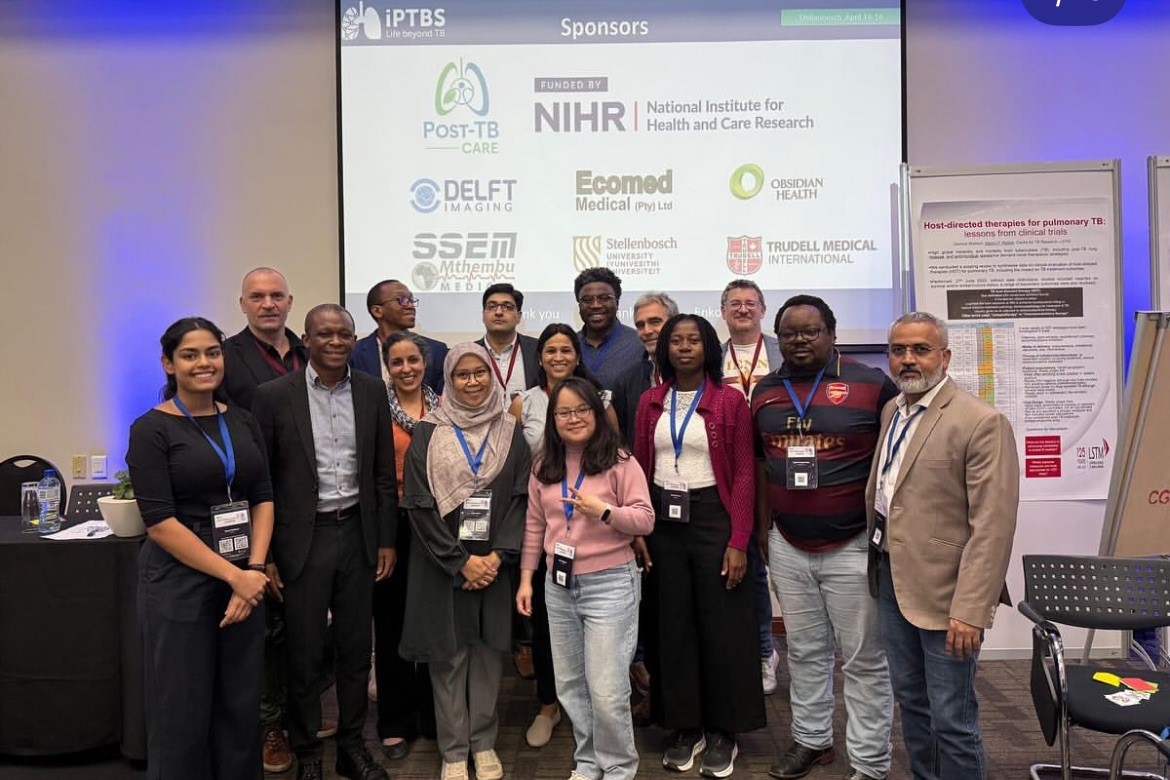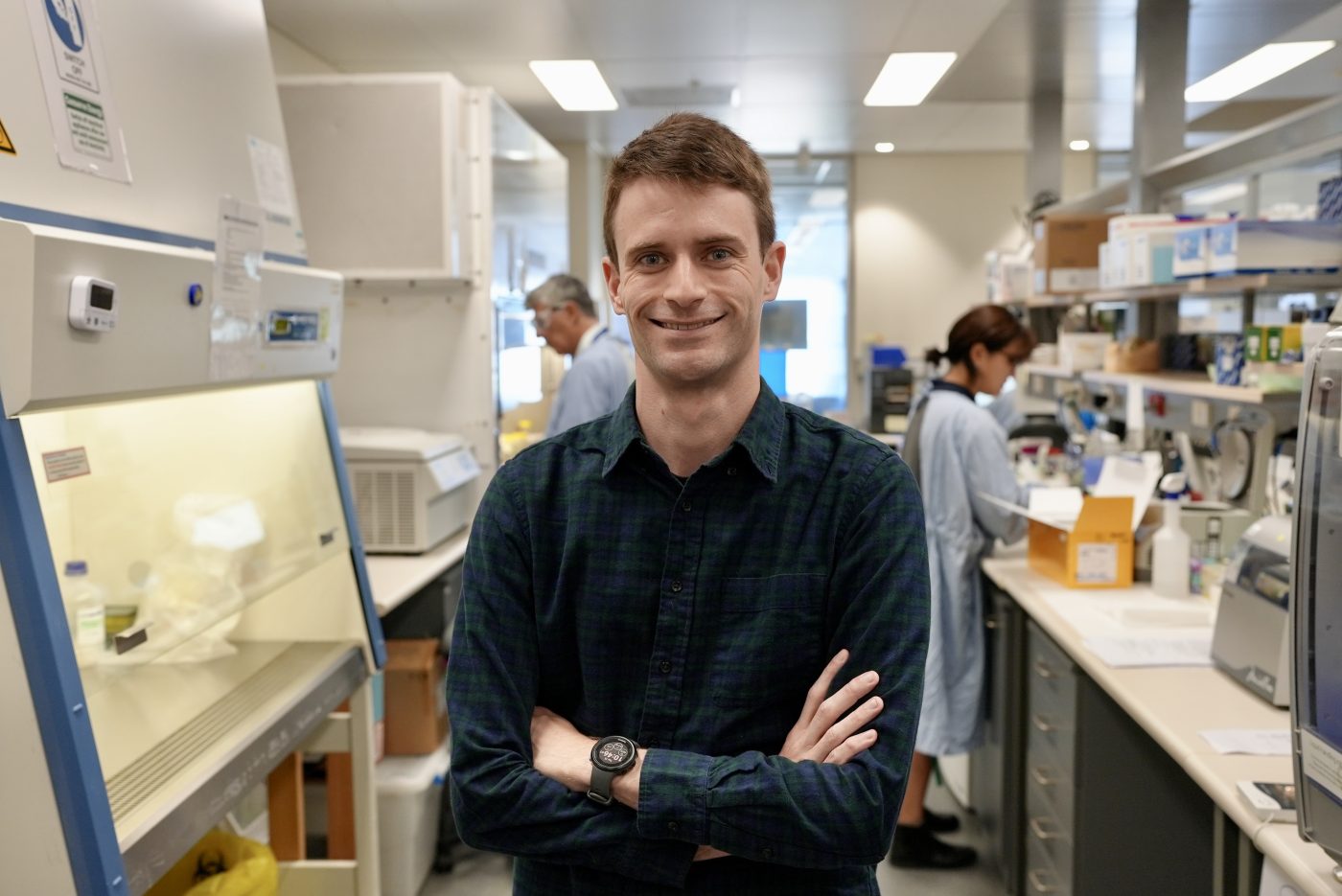St Vincent’s AMR’s annual Research Grants continue to be powerful catalysts for medical innovation, enabling clinician-researchers to pursue bold, high-impact studies. Three recent recipients Dr Anthony Byrne, Dr Richard Kevin and Dr Tim Molloy are leading projects that tackle urgent health challenges, from cardiovascular risk to post-infection lung disease and transplant pharmacology.
Improving Lung Health After TB and COVID-19
For Dr Anthony Byrne, a senior respiratory physician at St Vincent’s, the 2024 AMR grant enabled a rare opportunity: protected research time away from clinical duties. This flexibility allowed him to launch the “Post TB Lung Disease and Disability Study,” a collaborative project assessing lung function and quality of life in tuberculosis (TB) survivors – a group often overlooked in post-infection care.
Dr Byrne’s work also extends to Long COVID, another under-recognised condition. As an academic mentor to St Vincent’s inaugural Long COVID fellow, Dr Usama Mohamed, he is helping to build a research foundation for understanding and treating chronic respiratory symptoms following viral infections. His leadership on the global steering committee for the 3rd International Post TB Symposium further underscores the international relevance of his work.
Improving Transplant Care Through At-Home Blood Monitoring
Dr Richard Kevin used his AMR grant to develop a new test for measuring tacrolimus, a key immunosuppressant used in solid organ transplant, using volumetric dried blood spots (vDBS). “Once translated into routine clinical care, [this] may allow transplant recipients to self-collect a small blood sample at home.” Dr Richard Kevin
This innovation could significantly reduce the need for venepuncture, a process that is often painful, time-consuming, and particularly challenging for patients living in rural or remote areas. Building on the success of the tacrolimus assay (test), the team is now expanding the method to include additional immunosuppressant medications such as everolimus, sirolimus, and cyclosporine. At the same time they are validating their findings through the ‘TinyTac’ study, which involves samples self-collected by transplant patients. The next phase of the project involves conducting an economic analysis to support the translation of this test from a research setting into routine clinical care.
This research may be particularly beneficial for remote and rural patients and their carers, or those who may find it difficult to travel due to mobility or financial concerns.
Dr Richard Kevin


Genomic Insights into Blood Disorders
Dr Tim Molloy’s 2024 AMR Research Grant provided essential seed funding for a pioneering genome sequencing study that aimed to identify genetic variants associated with risk of testosterone-associated polycythaemia (PC), which is a major risk factor for high blood pressure, thrombosis, heart attack, and stroke. Leveraging a unique cohort of Australian adults from a clinical trial, Dr Molloy’s team identified somatic mutations in genes, with elements involved in red blood cell regulation.
The pilot study revealed that 43% of subjects with testosterone-induced PC carried somatic mutations, with associations to age, diabetes, and lipid levels. These findings not only advance understanding of PC but also open new avenues for research into anaemia, lymphopenia, and autoimmune diseases. Dr Molloy’s team now aims to validate these results in a larger cohort and explore functional impacts using stem-cell models.
Furthermore, because the research was conducted as part of a clinical trial, longitudinal samples and rich clinicopathological, health, and lifestyle data was collected on each subject. This means that the data can be used beyond the primary study, to inform several other correlative genomic studies into diseases including anaemia, lymphopenia, and autoimmune disease in AMR’s Haematology laboratory.
A Broader Impact
These projects underscore the value of the AMR Research Grants in enabling early-stage, high-impact research. From uncovering genetic drivers of blood disorders to addressing the long-term effects of infectious diseases, the grant has empowered clinician-researchers to pursue innovative studies that may otherwise have remained out of reach.
As Dr Byrne’s story highlights, these grants don’t just support research, they support innovation, collaboration, and the pursuit of justice for underserved patient populations.
Key Statistics:
- 43% of subjects with testosterone-induced PC carried somatic mutations, with associations to age, diabetes, and lipid levels.
